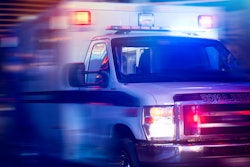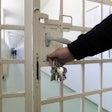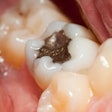As a healthcare professional, registered dental hygienists (RDHs) are expected to protect their patients by providing the utmost, evidence-based care to our patients. One of the ways that RDHs provide this care to their patients is by maintaining an active basic life support (BLS) certification.1
A BLS license is a specific type of CPR that is designed for a healthcare provider, including automatic external defibrillator machine training.1 With this specialized training, it is hoped that if a patient ever stopped breathing while under the care of a RDH, the patient's life could possibly be saved by the RDH who could administer CPR and help ensure blood flow to the brain while waiting for emergency medical services to arrive.
 Tracee Dahm, MS, RDH.
Tracee Dahm, MS, RDH.
Unfortunately, over the last couple of years, a more common event could be happening to patients while under an RDH's care, and some of us may not be as trained as we should. The event of an opioid overdose has a higher chance of happening to a patient than automobile accidents and gun accidents.2
In 2023, over 110,000 Americans died from an overdose.3 Of those 110,000 people, 70% of the time the overdose was caused by an opiate-based drug.2,3
Unfortunately, this death toll only seems to be increasing each year, despite the public's outcry to try and stop overdoses.2,3 Health professionals, law enforcement, and government officials are deeply concerned that the overdose trend will continue to rise annually.3
Opioids first became a concern about 30 years ago when health professionals noticed that some patients who took pain-killing drugs tended to become addicted to the euphoric feelings they experienced while on the medication. Because opiates come in various forms -- such as natural, synthetic, semisynthetic, methadone, and heroin -- how it makes a person feel and who will become addicted are hard to group into a target population.2
In the last 15 years or so, medical professionals have attempted to reduce the opioid epidemic by prescribing fewer opioids to patients who complain of pain.2 Unfortunately, despite efforts to educate the public on how addictive prescribed opioid medication can be, some of the population resorted to using other substances.
Thus, the population began using alcohol and benzodiazepines.4 Finally, people with an opioid addiction began using illegal street drugs, such as heroin and fentanyl, when they could no longer receive prescriptions for opioids.4
With this new, grim reality, one must ask why state dental boards are not mandating that all dental professionals receive naloxone (Narcan) training annually, like their BLS requirements, to maintain licensure. This training would help dental professionals recognize the signs of an overdose in addition to feeling comfortable with administering Narcan.
Narcan is one of the only ways to help reverse an overdose from opioids. It can be administered multiple ways, and sometimes, it must be administered more than once to a person who is experiencing an overdose.
This information is important for dental professionals, as well as other medical professionals, to understand so they can recognize when an individual is overdosing and act immediately.5 Emergency medical services must be notified if a dental professional suspects a patient is experiencing an overdose of any kind, which is something the training must also teach.
Finally, opioid overdose and Narcan administration should include training for dental professionals to help patients who admit on their medical history form that they have a substance use disorder or partake in illegal drug recreation. Perhaps an RDH could help a person with an opioid addiction avoid an overdose if they have valuable training on how to guide an opioid addict who is ready to become sober.
Currently, the ADA has several webinars and a continuing education course to help guide dentists in treating patients with an opioid addiction.6 The American Dental Hygienists' Association could help dental hygienists by providing these same resources.
Perhaps in the future, with enough requests to state board officials, RDHs, other dental professionals, and other medical professionals may see more mandated training on Narcan.
References
- CPR Certification Requirements for Dental Hygienists. ProTrainings. Accessed April 8, 2024. https://www.protrainings.com/cpr-certification/dental-assistant-hygienist#:~:text=To%20be%20a%20proficient%20rescuer%20in%20any%20situation.
- National Center for Drug Abuse Statistics. Drug overdose death statistics: Fentanyl, opioids, heroin & more. National Center for Drug Abuse Statistics. Published 2019. https://drugabusestatistics.org/drug-overdose-deaths/.
- McPhillips D. Overdose deaths reaching another record level in US, provisional data shows. CNN. Published September 13, 2023. https://www.cnn.com/2023/09/13/health/overdose-deaths-record-april-2023/index.html.
- Rich S, Ovalle D. Overdoses soared even as prescription pain pills plunged. Washington Post. Published September 12, 2023. https://www.washingtonpost.com/investigations/2023/09/12/us-overdose-deaths-opioid-crisis/
- Hapeman, Lauren. Why Narcan training is essential for dental hygienists. Dentistry IQ. Published May 13, 2021. https://www.dentistryiq.com/dental-hygiene/article/14203253/why-narcan-training-is-essential-for-dental-hygienists.
- Opioid Education for Dentists - How Dentists Prescribe Opioids. American Dental Association. www.ada.org. https://www.ada.org/resources/practice/wellness/opioid-education-for-dentists.
Tracee S. Dahm, MS, RDH, is an adjunct clinical instructor for the North Idaho College School of Dental Hygiene in Coeur d’Alene, ID. She also works in private practice. Dahm has published articles in several dental journals, magazines, and a textbook. Her research interests include trends in dental hygiene and improving access to dental care for the underserved. She can be reached at [email protected].
The comments and observations expressed herein do not necessarily reflect the opinions of DrBicuspid.com, nor should they be construed as an endorsement or admonishment of any particular idea, vendor, or organization.



















